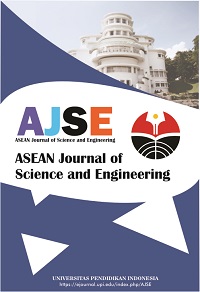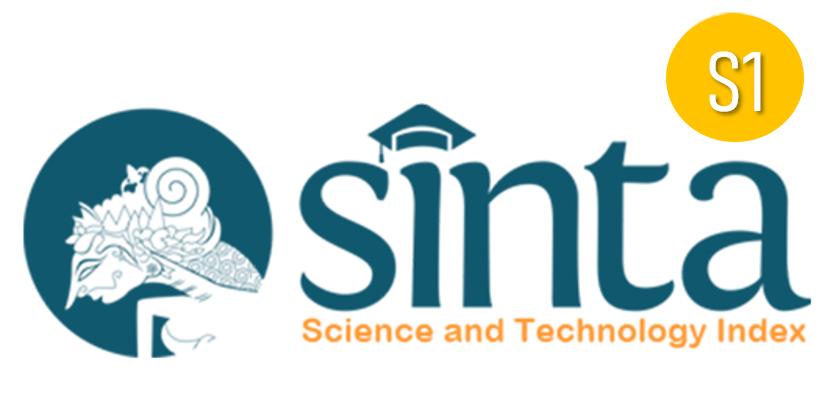Data-Driven Evaluation of Leadership Competency Development for Elementary School Principals: A Systems Engineering Approach
Abstract
This study aims to evaluate the effectiveness of an elementary school principal’s leadership competency development program using a systems engineering approach integrated with science and technology principles. Employing a mixed-method design, data were collected from supervisors, principals, and teachers through questionnaires and interviews. Quantitative findings showed leadership competencies were consistently rated as good. Qualitative analysis revealed systemic barriers, such as administrative burden, inconsistent feedback, and the absence of digital monitoring systems. These factors hinder adaptive learning because they reduce collaboration and data-driven decision-making. Integrating a systems engineering mindset with real-time digital supervision and peer mentoring is essential for iterative improvements. This approach impacts educational leadership by promoting structured yet flexible feedback loops, enhancing principal performance, and supporting scalable leadership innovation within diverse school ecosystems.
Keywords
Full Text:
PDFReferences
Firmansyah, F., Prasojo, L. D., Jaedun, A., and Retnawati, H. (2022). Transformational leadership effect on teacher performance in Asia: A meta-analysis. Cypriot Journal of Educational Sciences, 17(6), 2127–2146.
Santoso, B., Imaniyati, N., Hikmawan, T., and Rostini, L. (2023). Analysis of the principal's quality leadership on the teacher's work commitment. Indonesian Journal of Multidiciplinary Research, 3(2), 245-254.
Estrellan, J.C., and Loja, R.L. (2021). Emotional intelligence and leadership behavior of secondary schools’ principals of the division of Sultan Kudarat, The Philippines. Indonesian Journal of Community and Special Needs Education, 1(2), 71-76.
Glushchenko, V.V. (2023). Ergodesign and “specific”, "measurable", "achievable", "relevant", and "time-bound" (SMART) technologies as tools for the formation of innovative leadership programs. ASEAN Journal of Economic and Economic Education, 2(1), 23-34.
Adeoye, M.A., Jimoh, H.A., and Abdulkareem, H.B. (2023). Leadership and organizational cultural roles in promoting sustainable performance appraisal and job satisfaction among academic staff. ASEAN Journal of Economic and Economic Education, 2(2), 115-124.
Dutta, V., and Sahney, S. (2022). Relation of principal instructional leadership, school climate, teacher job performance, and student achievement. Journal of Educational Administration, 60(2), 148–166.
Park, J.-H., Lee, I. H., and Cooc, N. (2019). The role of school-level mechanisms: how principal support, professional learning communities, collective responsibility, and group-level teacher expectations affect student achievement. Educational Administration Quarterly, 55(5), 742–780.
Veletić, J., Price, H. E., and Olsen, R. V. (2023). Teachers’ and principals’ perceptions of school climate: the role of principals’ leadership style in organizational quality. Educational Assessment, Evaluation and Accountability, 35(4), 525–555.
Yuliana, L., Prasojo, L. D., and Akalili, A. (2022). Analysis of confirmatory factors of principals’ leadership training of vocational high school. Jurnal Cakrawala Pendidikan, 41(3), 599–618.
Janssen, M., and van der Voort, H. (2016). Adaptive governance: Towards a stable, accountable and responsive government. Government Information Quarterly, 33(1), 1–5.
Awoyemi, O., Atobatele, F. A., and Okonkwo, C. A. (2024). Enhancing high school educational leadership through mentorship: A data-driven approach to student success. Journal of Frontiers in Multidisciplinary Research, 5(1), 168–175.
Bellibaş, M. Ş., Kılınç, A. Ç., and Polatcan, M. (2021). The moderation role of transformational leadership in the effect of instructional leadership on teacher professional learning and instructional practice: An integrated leadership perspective. Educational Administration Quarterly, 57(5), 776–814.
Khan, K. J., Begum, N., and Razak, A. (2020). Practicing results based management for enhancement of quality and performance of social development and humanitarian programmes. Universal Journal of Management, 8(5), 231–253.
Boy, G. A. (2017). Human-centered design of complex systems: An experience-based approach. Design Science, 3, e8.
Samaras, G. M., and Horst, R. L. (2005). A systems engineering perspective on the human-centered design of health information systems. Journal of Biomedical Informatics, 38(1), 61–74.
Azainil, A., Komariyah, L., and Yan, Y. (2021). The effect of principal’s managerial competence and teacher discipline on teacher productivity. Cypriot Journal of Educational Sciences, 16(2), 563–579.
Kadri, K., Mansor, A. N., and Nor, M. Y. M. (2021). Principal and teacher leadership competencies and 21st century teacher learning and facilitating practices: Instrument development and demographic analysis. Creative Education, 12(09), 2196–2215.
Asumeng, M. A. (2014). Managerial competency models: A critical review and proposed holistic-domain model. Journal of Management Research, 6(4), 1-21.
Ross, D. J., and Cozzens, J. A. (2016). The principalship: Essential core competencies for instructional leadership and its impact on school climate. Journal of Education and Training Studies, 4(9), 162–176.
Day, C., Gu, Q., and Sammons, P. (2016). The impact of leadership on student outcomes. Educational Administration Quarterly, 52(2), 221–258.
Li, X., Wang, Z., Huang, Y., and Chen, H. (2023). A survey on self-evolving autonomous driving: a perspective on data closed-loop technology. IEEE Transactions on Intelligent Vehicles, 8(11), 4613–4631.
Butler, J. R. A., Wise, R. M., Skewes, T. D., Bohensky, E. L., Peterson, N., Suadnya, W., Yanuartati, Y., Handayani, T., Habibi, P., Puspadi, K., Bou, N., Vaghelo, D., and Rochester, W. (2015). Integrating top-down and bottom-up adaptation planning to build adaptive capacity: A structured learning approach. Coastal Management, 43(4), 346–364.
Liao, Y. Y., Soltani, E., Iqbal, A., and van der Meer, R. (2024). The utility of performance review systems: A total quality management perspective. Strategic Change, 33(4), 287–310.
Nurramadhani, A., Riandi, R., Permanasari, A., and Suwarma, I.R. (2024). Low-carbon food consumption for solving climate change mitigation: Literature review with bibliometric and simple calculation application for cultivating sustainability consciousness in facing sustainable development goals (SDGs). Indonesian Journal of Science and Technology, 9(2), 261-286.
Krishnan, A., Al-Obaidi, A.S.M., and Hao, L.C. (2024). Towards sustainable wind energy: A systematic review of airfoil and blade technologies over the past 25 years for supporting sustainable development goals (SDGs). Indonesian Journal of Science and Technology, 9(3), 623-656.
Djirong, A., Jayadi, K., Abduh, A., Mutolib, A., Mustofa, R.F., and Rahmat, A. (2024). Assessment of student awareness and application of eco-friendly curriculum and technologies in Indonesian higher education for supporting sustainable development goals (SDGs): A case study on environmental challenges. Indonesian Journal of Science and Technology, 9(3), 657-678.
Waardhani, A.W., Noviyanti, A.R., Kusrini, E., Nugrahaningtyas, K.D., Prasetyo, A.B., Usman, A., Irwansyah, F.S., and Juliandri, J. (2025). A study on sustainable eggshell-derived hydroxyapatite/CMC membranes: Enhancing flexibility and thermal stability for sustainable development goals (SDGs). Indonesian Journal of Science and Technology, 10(2), 191-206.
Yustiarini, D., Soemardi, B.W., and Pribadi, K.S. (2025). Integrating multi-stakeholder governance, engineering approaches, and bibliometric literature review insights for sustainable regional road maintenance: Contribution to sustainable development goals (SDGs) 9, 11, and 16. Indonesian Journal of Science and Technology, 10(2), 367-398.
Merzouki, M., Khibech, O., Fraj, E., Bouammali, H., Bourhou, C., Hammouti, B., Bouammali, B., and Challioui, A. (2025). Computational engineering of malonate and tetrazole derivatives targeting SARS-CoV-2 main protease: Pharmacokinetics, docking, and molecular dynamics insights to support the sustainable development goals (SDGs), with a bibliometric analysis. Indonesian Journal of Science and Technology, 10(2), 399-418.
Namoussa, T.Y., Boucerredj, L., Khechekhouche, A., Kemerchou, I., Zair, N., Jahangiri, M., Miloudi, A., and Siqueira, A. (2025). Innovative nanofluid encapsulation in solar stills: Boosting water yield and efficiency under extreme climate supporting sustainable development goals (SDGs). Indonesian Journal of Science and Technology, 10(3), 419-426.
Glovatskii, O., Kalimbetov, B., Ergashev, R., Kholbutaev, B., Pardaev, M., Ergasheva, G., Nasirova, N., and Khimmataliev, D.O. (2025). Modernization of submersible pump designs for sustainable irrigation: A bibliometric and experimental contribution to sustainable development goals (SDGs). Indonesian Journal of Science and Technology, 10(3), 427-438.
Ragadhita, R., Fiandini, M., Al Husaeni, D.N., and Nandiyanto, A.B.D. (2026). Sustainable development goals (SDGs) in engineering education: Definitions, research trends, bibliometric insights, and strategic approaches. Indonesian Journal of Science and Technology, 11(1), 1-26.
Basnur, J., Putra, M.F.F., Jayusman, S.V.A., and Zulhilmi, Z. (2024). Sustainable packaging: Bioplastics as a low-carbon future step for the sustainable development goals (SDGs). ASEAN Journal for Science and Engineering in Materials, 3(1), 51-58.
Sesrita, A., Adri, H.T., Suherman, I., Rasmitadila, R., and Fanani, M.Z. (2025). Production of wet organic waste ecoenzymes as an alternative solution for environmental conservation supporting sustainable development goals (SDGs): A techno-economic and bibliometric analysis. ASEAN Journal for Science and Engineering in Materials, 4(2), 245-266.
Henny, H., Budi, A.H.S., Andriyansyah, M., Ar Rozzak, M.R., Baru, M.M., and Masek, A. (2025). Hazard identification, risk assessment, and determining control (HIRADC) for workplace safety in manufacturing industry: A risk-control framework complete with bibliometric literature review analysis to support sustainable development goals (SDGs). ASEAN Journal for Science and Engineering in Materials, 4(2), 267-284.
Syahrudin, D., Roestamy, M., Fauziah, R.S.P., Rahmawati, R., Pratidina, G., Purnamasari, I., Muhtar, S., and Salbiah, E. (2026). Techno-economic analysis of production ecobrick from plastic waste to support sustainable development goals (SDGs). ASEAN Journal for Science and Engineering in Materials, 5(1), 9-16.
Apriliani, A., Waahyudin, C., Ramdani, F.T., Martin, A.Y., Syahrudin, D., Hernawan, D., and Salbiah, E. (2026). Techno-economic analysis of sawdust-based trash cans and their contribution to Indonesia’s green tourism policy and the sustainable development goals (SDGs). ASEAN Journal for Science and Engineering in Materials, 5(1), 17-36.
Haq, M.R.I., Nurhaliza, D.V., Rahmat, L.N., and Ruchiat, R.N.A. (2024). The influence of environmentally friendly packaging on consumer interest in implementing zero waste in the food industry to meet sustainable development goals (SDGs) needs. ASEAN Journal of Economic and Economic Education, 3(2), 111-116.
Gemil, K. W., Na’ila, D. S., Ardila, N. Z., and Sarahah, Z. U. (2024). The relationship of vocational education skills in agribusiness processing agricultural products in achieving sustainable development goals (SDGs). ASEAN Journal of Science and Engineering Education, 4(2), 181-192.
Maryanti, R., Rahayu, N., Muktiarni, M., Al Husaeni, D. F., Hufad, A., Sunardi, S., and Nandiyanto, A. B. D. (2022). Sustainable development goals (SDGs) in science education: Definition, literature review, and bibliometric analysis. Journal of Engineering Science and Technology, 17, 161-181.
Xing, G., Chano, J., Thadanatthaphak, Y., and Wu, C.C. (2025). Physical adaptation of college students in high-altitude training: empirical findings and curriculum development insights to support Sustainable Development Goals (SDGs). ASEAN Journal of Educational Research and Technology, 4(2), 215-236.
Imaniyati, N., Ratnasari, C.D., and Adman, A. (2025). Enhancing job satisfaction through human resource information systems and communication: A commitment-based approach to achieve sustainable development goals (SDGs) in education-oriented organizations. ASEAN Journal of Educational Research and Technology, 4(2), 237-254.
DOI: https://doi.org/10.17509/ajse.v5i2.88663
Refbacks
- There are currently no refbacks.
Copyright (c) 2025 Universitas Pendidikan Indonesia

This work is licensed under a Creative Commons Attribution-ShareAlike 4.0 International License.












